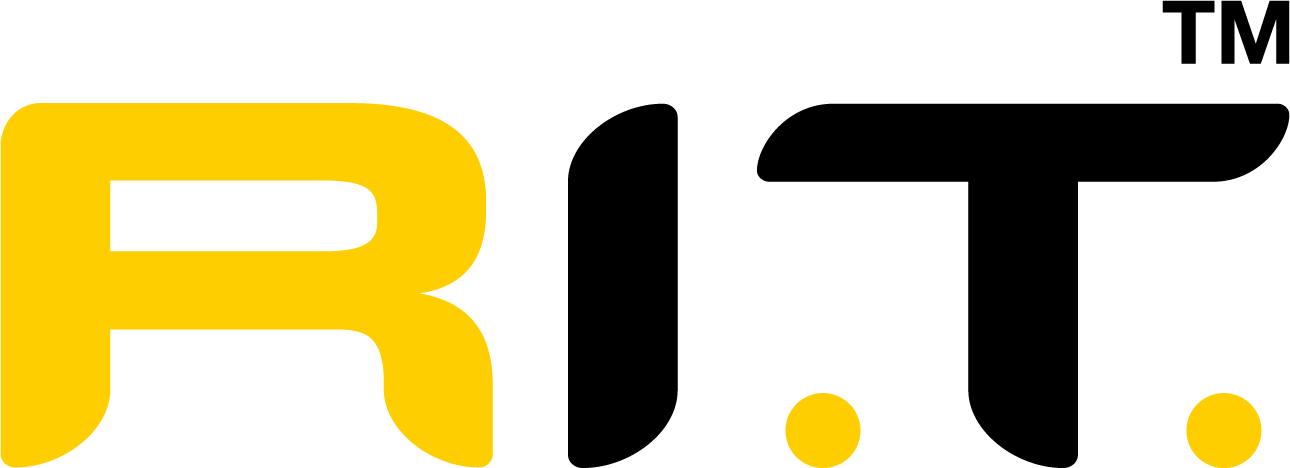Candidate Resources
Practical tools, guides, and insights to help you navigate the job market, prepare for interviews, and take the next step in your tech career with confidence.

We’ve seen it all. Some CVs stand out for the right reasons, some fall flat, and others make us wonder, “What story is this person trying to tell?” Whether you’re a developer in Auckland, a BA in Wellington, or an engineer in Hamilton, your CV is your first handshake with a potential employer. It can open doors or quietly close them before you even get a look-in. This isn’t theory. As recruiters, we’ve read thousands of CVs across New Zealand’s tech scene. Some make the shortlist straight away. Others lose us after a quick skim. Here’s what we’ve learned from years of experience helping candidates and hiring managers. Think of this as a behind-the-scenes look from people who read CVs every day.

Field at Present: From a Director’s Perspective We have seen a continuation of the slow start to the year, which is expected given the overall economic climate in the market alongside government budgetary pressures. There is certainly an increase in general activity coming in from private companies with an increase in ratios of new hires vs replacements. With the recent budget announcements, we will see the flow on impact across government with both the continuation and kick off of new projects, which in our prediction will see an increase in recruitment activity across the board from July onwards. Although certainly not at the frequency of what we have seen in the last six months, we are still seeing organisations across a range of industries forced into making rounds of redundancies and other operational cuts or changes to help them operate more leanly during challenging times.

Aotearoa’s tech scene has been tricky to navigate lately, with constant changes and economic factors directly affecting the way businesses recruit; and the need for the right recruitment partner has never been more crucial. Companies are in a constant battle to snag the best talent amid the candidate-heavy market, facing off against fierce competition at every turn. Because of this, it’s tempting to cast a wide net and work with multiple recruiters, but let’s talk about the magic of going exclusive. Here's why you should consider going exclusive with a recruitment partner for any roles you’re recruiting for:

So, you’re about to embark on a new adventure in the tech world. Whether you’re diving into the buzzing scene of New Zealand or any other tech hub, starting with a new company can be both thrilling and daunting. But fret not, we’ve got your back with some practical tips to help you navigate those early days with ease, no matter where you land.

Entering the job market after many years can be a daunting task, especially in the fast-paced world of IT and Technology. With advancements happening at breakneck speed, it is understandable to feel overwhelmed when suddenly thrown into starting your job search journey anew. However, there are simple steps you can take to get you started, ease the transition, and help you in landing your new dream job. At Recruit I.T., we've seen many experienced candidates successfully navigate this path, and we're here to share some valuable advice with you. 1. Revamp Your CV Your CV is your ticket to securing interviews, so it is crucial to ensure it’s up-to-date and tailored to the roles you are applying for. If yours is still in typewritten format and doesn’t include what you’ve been up to for the last 10 years, now is the time to get it updated. Ensure it includes your most recent and relevant roles, delete your high school work experience, and highlight your relevant experience, skills, and achievements prominently, focusing on how they align with the requirements of the positions you're targeting. If you are unsure where to start, collaborating with a specialised recruiter like Recruit I.T. can provide valuable insights and guidance in crafting a compelling resume. 2. Leverage Your Network Don't underestimate the power of networking, especially in the tight-knit IT and Technology community in New Zealand. Reach out to former colleagues, mentors, clients, and industry connections to let them know you're actively seeking opportunities. Attend industry events, meetups, and conferences to expand your network further. Many job opportunities are filled through referrals, so make sure to stay connected and keep your network informed about your job search. 3. Explore Both General and Specialised Job Boards You may have found your first job via a newspaper classified, but times have changed! While general online job boards like Seek and Trade Me, as well as LinkedIn Jobs are a good starting point, consider exploring specialised job boards focused specifically on IT and Technology roles, and register with a relevant recruitment agency like Recruit I.T. as specialised platforms like our website job board cater to this niche market, offering a curated selection of job openings tailored to your expertise. By targeting your search on these platforms, you increase your chances of finding roles that align with your skills and career goals. 4. Prepare for Interviews Brush up on your interview skills to ensure you make a strong impression during the selection process. Research the company and the role thoroughly, familiarising yourself with STAR and behavioural-based interview techniques (there is lots of info online!), practising common interview questions, and preparing examples that highlight your abilities and experiences. Additionally, familiarise yourself with the latest industry trends and developments to demonstrate your awareness and relevance in the field. It also won’t hurt to review and brush up on your verbal and numerical reasoning skills – once again, there are lots of free resources online to help you practise these types of tests/exercises. 5. Update Your Skills The IT and Technology landscape evolves rapidly, with new technologies and methodologies emerging regularly. Whilst you’ve developed your abilities on the job, do take the time to update your skills and knowledge with formal certifications and training to remain competitive in the market. Consider enrolling in courses, attending workshops, or pursuing certifications relevant to your field. Not only does this demonstrate your commitment to growth, but it also enhances your attractiveness to potential employers. 6. Be Flexible and Open-Minded The job market can be unpredictable, so it's essential to remain flexible and open-minded throughout your job search. Be willing to consider different roles, industries, or a short-term contract opportunity that may not align precisely with your previous experience. Embrace new challenges and opportunities for growth, as they can lead to unexpected career advancements and personal fulfilment. 7. Seek Guidance from Experts Navigating the job market alone can be overwhelming, especially after being out of the game for some time. In many cases, if your position has been made redundant, your organisation may provide outplacement services to offer help with CV crafting, interview prep, job search, practise testing and in some instances will also provide free access to training platforms. Consider seeking guidance from experienced specialised recruiters like our Recruit I.T. consultants. Our team possesses in-depth knowledge of the IT and Technology industries, along with extensive networks and resources to support your job search journey. From resume optimisation to interview preparation, we can provide valuable assistance every step of the way. Utilise all the free and skilled help you can access! 8. Embrace Your Experience and Life Skills It's easy to feel apprehensive about re-entering the job market after a long tenure with a single company or a prolonged absence, but remember to embrace the wealth of experience and life skills you've accumulated over the years. Your past successes, whether in your career or personal life, have equipped you with valuable insights, problem-solving abilities, and resilience that will be sought-after and appreciated by employers. While you may not have a recent job application or job hunt history, your track-record speaks volumes about your capabilities and adaptability. Have confidence in your abilities, and don't underestimate the value you bring to the table. Highlight your accomplishments and transferable skills during interviews, showcasing how they make you an asset to any organisation. By owning your experience and life skills, you can instill trust and credibility in potential employers, setting yourself apart from other candidates in the competitive job market. Embarking on a job search journey after many years can be a challenging yet rewarding experience. By revamping your resume, leveraging your network, exploring job boards, preparing for interviews, updating your skills, remaining flexible, seeking guidance from experts, and remaining confident in your experience and skills, you can increase your chances of success in the competitive New Zealand job market. Remember, you are not alone in this journey, and with the right support and resources, you will find your next opportunity. Our team are always happy to shout the coffee and provide some expert friendly and constructive advice to help you get started on your job hunt, so reach out anytime!

Field at Present: From a Director’s Perspective Generally, we have seen a slow start to the year, continuing the trend we saw in the latter half of 2023. Despite feedback from the market that suggested a stronger bounce back, we have yet to see this in the market at present. There are pockets of activity - primarily back-fills to existing hires. As we gear towards the backend of the government’s 100-day plan, we should see the firming up of new projects and programmes, which will likely require capability to deliver these pieces of work. Unfortunately, we are still seeing organisations across a range of industries forced into making rounds of redundancies and other operational cuts or changes to help them operate more leanly during challenging times, and we’ve even seen this in the recruitment industry itself.

By now, we’re sure most of you have already read some of the posts going on about the ‘Open to Work’ banner on LinkedIn. In the dynamic realm of professional networking, the debate around this topic has sparked its fair share of banter. Is it a bold declaration of job-seeking enthusiasm, or does it project an air of desperation? Let’s address the elephant in the room – the ongoing banter about whether adding an ‘Open to Work’ banner is a savvy career move or a sign of desperation. Opinions vary, with some professionals arguing that it’s a powerful tool for career contractors to swiftly signal their availability to the job market. On the other hand, skeptics see it as an unnecessary disclosure that might raise eyebrows. At Recruit I.T., as a business whose mission is to connect talented individuals with exciting career opportunities, where do we stand on this? It’s simple - we see putting an ‘Open to Work’ banner as a big green flag waving right at us, inviting us to reach out with great roles. Why the love for the banner, you might ask? It’s a helpful signal, especially for those actively seeking new opportunities. If someone is clearly a career contractor, this banner can be a positive and powerful tool to broadcast their availability. From a recruiter’s perspective, it’s not about desperation it’s about visibility. The ‘Open to Work’ listed option can be outdated, but the banner provides a more immediate and visible signal. Our experienced team, however, wants to reassure candidates that if you choose not to use the ‘Open to Work’ banner, that’s also perfectly fine. We pride ourselves on being adept at sourcing individuals with the right skills and experience for our roles, banner, or no banner. After all, most reputable recruiters should be skilled in identifying top talent whatever the circumstance. Here’s what Recruit I.T. Consultants have to say: One of our team members notes, “If someone is obviously a career contractor, I think it is a positive and powerful tool to let the market know fast.” Another adds, “From a recruiter’s perspective, I don’t see them as looking desperate at all. It’s helpful in searches.” Another team member chimes in with a valuable insight, “The more you put into LinkedIn, the more it enables recruiters to find and help you. Utilise your connections to share and get support from others. It can enhance your personal brand.” They emphasis that the ‘Open to Work’ banner, when used effectively, can be a strategic move that enhances your visibility in the job market. In the grand scheme of things, the ‘Open to Work’ banner banter is, in our opinion, a lot of noise about nothing. The banner serves as a tool, and its impact ultimately depends on how it aligns with your personal branding strategy. It’s your call whether to put it up or not. So, if you choose to use it, great! If not, no worries—there are skilled and trusted recruiters out there like ours at Recruit I.T. who are capable of finding you and top talent among a sea of candidates, with or without the banner. If you’re navigating the twists and turns of your career journey and seeking guidance or exciting new roles, don’t hesitate to reach out to any of our Consultants. Our team is here to offer professional advice and connect you with exciting opportunities! Your next move might just be a click away.

At Recruit I.T., we understand the importance of showcasing your experiences, behaviours, knowledge, skills, and abilities during the interview process. It's not just about what you've done, but how you've done it and what results you've achieved. Behavioural-based interview is the key to unlocking your potential and predicting your future success. So, what exactly is behavioural-based recruitment? It's all about digging into your past experiences to understand how you've tackled challenges and achieved results. The panel will be seeking specific examples of your behaviour, so be prepared to tell stories that demonstrate your capabilities. During the interview, you'll encounter open-ended questions that require more than just a yes or no answer. Think of them as invitations to share your experiences. Remember the acronym STAR: Situation, Task, Action, Result. Craft your answers to include all these components, painting a clear picture of your abilities and achievements. Let's break down the STAR approach:



